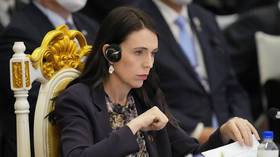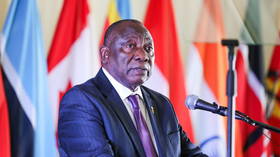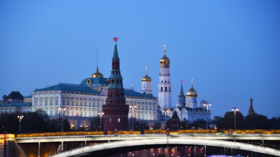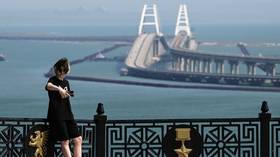New Zealand PM’s resignation might leave China nervous

New Zealand Prime Minister Jacinda Ardern has announced she will resign in February, saying she doesn’t have “enough in the tank” to keep going, ending a six-year tenure in Wellington which, for the most part, was praised around the world. Some called her “one of the greatest prime ministers in New Zealand’s history.”
But as she leaves office, there will be big geopolitical ramifications as well. China, for one, will be watching events in New Zealand carefully, and will be nervous about whether her successor, whoever that might be, will continue to follow what was Ardern’s “China-friendly” foreign policy, a notion which often put her at odds with her Five Eyes allies.
When it comes to the Five Eyes, a US-dominated espionage alliance founded during World War II, New Zealand has been the odd duck, or odd kiwi if you like, when it comes to China. While the United Kingdom, Canada and, for a while, Australia have become hyper aggressive against Beijing and uncritically signed up to the US-led containment agenda, New Zealand under Ardern was different, and opted in many respects to do its own thing.
There are many reasons why. First, New Zealand, in terms of population, is much smaller than the rest of the Five Eyes. Although its territory is larger than that of Britain, the country is populated by just five million people (fewer than London), which makes it much more vulnerable in geopolitical confrontation.
Second, New Zealand is much less zealous, militaristic, and aggressive than the other Five-Eyes countries, due to the differing historical circumstances in which it emerged as a “compromise” between the British and the native Maori population. The country’s identity is less “Anglicized” and more “Polynesian.” While indigenous peoples in the other Anglosphere countries were pretty much decimated, Maori remain a cultural and political force, which changes New Zealand’s outlook.
Third, New Zealand’s economy is highly reliant on agriculture-related exports, for which China is the largest market, leaving it with a gigantic surplus. Ardern subsequently worked hard to enhance New Zealand’s trade relationship with Beijing, having upgraded the bilateral trade agreement with China in 2022.
But the question now is, with Ardern having been a highly progressive and left-leaning prime minister, will things change? Might New Zealand experience a foreign policy shift? As of now, it is impossible to say, although it seems logical that someone with her faction of the party, or perhaps who already served in government with her, may take power. Nonetheless, one can absolutely guarantee that on the other hand, there will be an effort from the United States to attempt to “reset” New Zealand’s foreign policy course, with America ultimately seeing it as a critical Indo-Pacific ally due to its geographical position.
However, short of New Zealand getting a Scott Morrison-like right-wing populist (which obviously will not be found in the country’s Labour Party), the chances of a full U-turn and a collision course with Beijing remains unlikely. That’s because these geographic and economic realities matter. Likewise, the mood in Canberra is also working in New Zealand’s favor. With the Labour Party now also in power in Australia, and Anthony Albanese and Penny Wong leading a more pragmatic policy towards China, repairing the damage caused by Scott Morrison’s pro-American fanaticism, New Zealand’s overall foreign policy environment will be a lot more comfortable.
That doesn’t mean, of course, that China will not try to put its “stamp of authority” on the country again either. In the past few months, it was reported in the press that Ardern had been invited to Beijing. However, her pending resignation now makes that visit seem improbable. China is likely to respond to this scenario by quickly extending an invitation to her successor to come and meet with Xi Jinping. Fearing pressure from the United States and any potential change of course, Beijing will seek stability and continuity as quickly as possible. This is because China fears the unity of the Five Eyes against it, and has had more success in dealing with New Zealand than any other member.
Either way, it is an understatement that Ardern will be missed, for various reasons, the world over. She will be remembered as a compassionate, positive, caring, and dedicated individual. Yet for all the West’s love for her, she positioned herself as an ambiguous and cautious leader in respect of the biggest geopolitical struggle today. Ardern was realistic, moderate and sensible when it came to China and rejected the Cold War approach seen in other Five Eyes capitals. Beijing will want to preserve her legacy as much as possible.
The statements, views and opinions expressed in this column are solely those of the author and do not necessarily represent those of RT.














